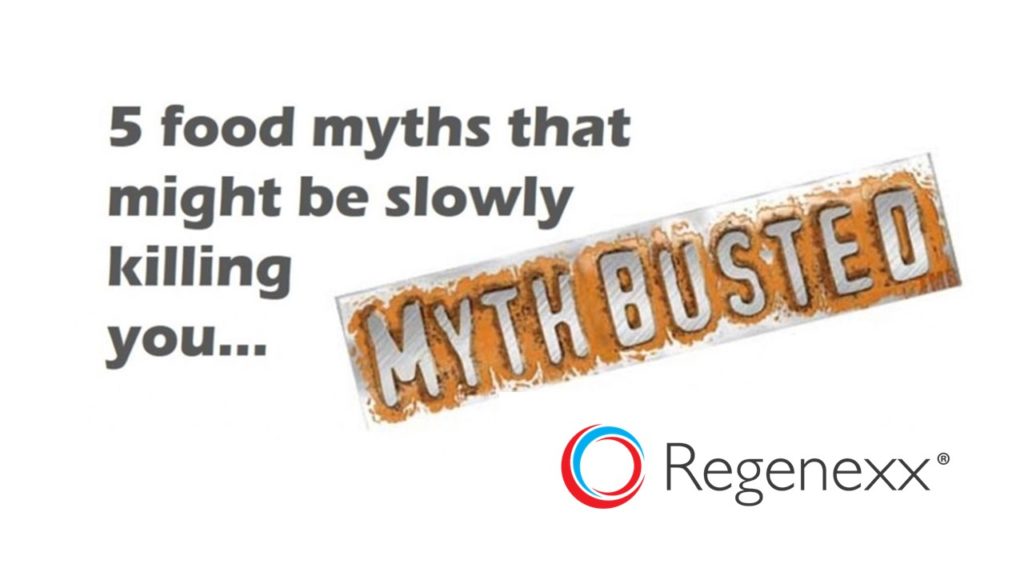5 Food Myths that Might Be Slowly Killing You!
I was reading a short scientific abstract out of Denmark this morning that was well written and pointed to a number of things about diet that have been debunked over the last decade. What hit me was that the vast majority of of my patients (and some doctors) still believe many of these food myths from the 70s, 80s, and 90s. So this morning lets get into the probability of 5 food myths hurting your health:
1. Replacing fat in the diet with “fat free” or “low fat” foods is a good idea. There are no shortage of manufacturers still advertising that their product is low fat. This is a bad food myth for two reasons. First, as long as it’s not trans-fat (which is being phased out) or vegetable fats like soy, canola, or cotton seed oil, there is nothing wrong with eating fat. As for saturated fat, the kind you find in meat, butter, eggs, coconut, or cheese, few high level, modern research studies show that that this is a health issue. Food that is rich in omega 3 fatty acids, like fish, is a net positive health benefit. On the other hand, low fat foods commonly replace the fat with more carbohydrates such as starches and sugars, which does make the food more unhealthy! Beware, as many science journalists writing for major news outlets get this one wrong all the time!
2. The fat found in meat, butter, eggs, or cheese is bad for you. See above. As an example, despite a high saturated fat content, dark chocolate and cheese may reduce heart and diabetes risk.
3. Canola oil sounds like “granola”, so it must be really good for you? In fact, the high pro-inflammatory fats found in canola, soy, and cottonseed oil (common vegetable fats) are bad for you. They have high levels of arachadonic acid (AA) which causes chronic inflammation which is responsible for a host of diseases from heart to brain. This is a real issue, as many food manufacturers have just switched out bad trans-fats with these oils because they’re dirt cheap.
4. Eggs are high in cholesterol, so they must be bad for you. The belief that total cholesterol is a direct killer has been widely marketed but is increasingly considered flawed science — as this article on statins and heart disease explains.
5. All “carbs” are equal. Nope. In fact, there are high and low glycemic carbohydrates based on whether they quickly spike your blood sugar or slowly digest in your system. This is why sugar or fruit juices are bad, because they can be virtually “mainlined” into your blood stream leading to a big insulin spike that will make it very hard to burn fat and maintain weight. On the other hand, low glycemic carbs like certain whole grains (for example rye) won’t spoke your blood sugar and insulin.
The upshot? It’s amazing how most patients I meet don’t know these simple 5 rules on how to eat to protect their health. It’s also amazing that smart journalists who aren’t keeping up with the high level scientific publications on food still propagate these myths. So update your food knowledge today, it may save your life!

NOTE: This blog post provides general information to help the reader better understand regenerative medicine, musculoskeletal health, and related subjects. All content provided in this blog, website, or any linked materials, including text, graphics, images, patient profiles, outcomes, and information, are not intended and should not be considered or used as a substitute for medical advice, diagnosis, or treatment. Please always consult with a professional and certified healthcare provider to discuss if a treatment is right for you.

